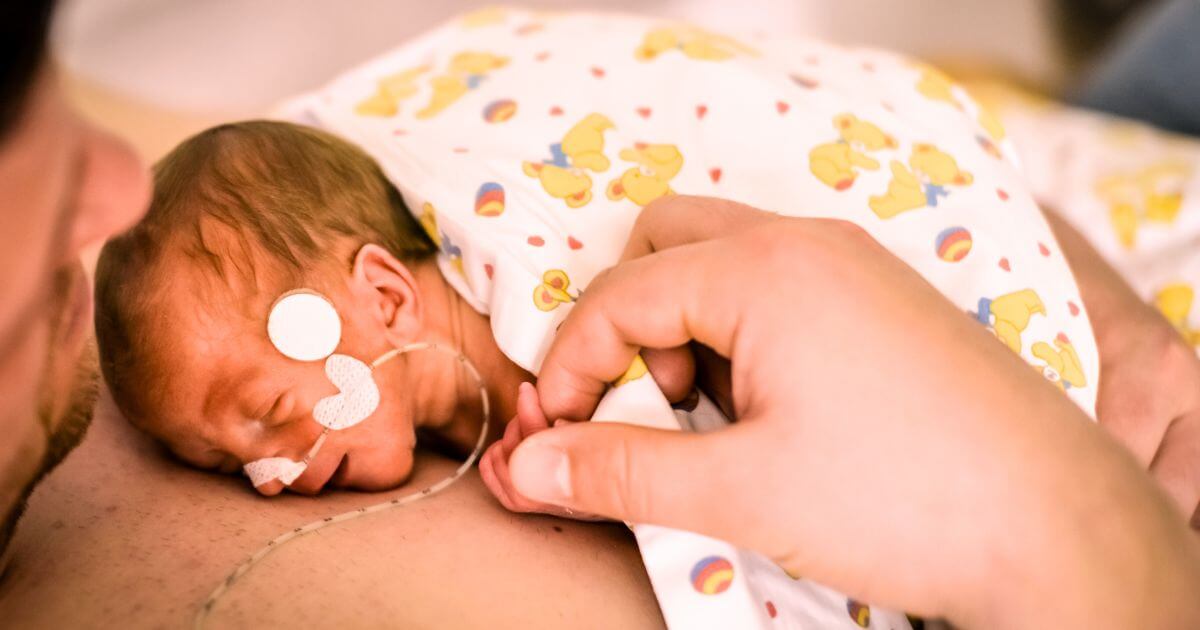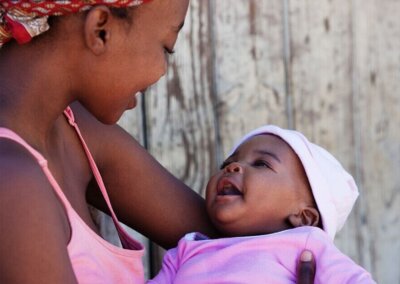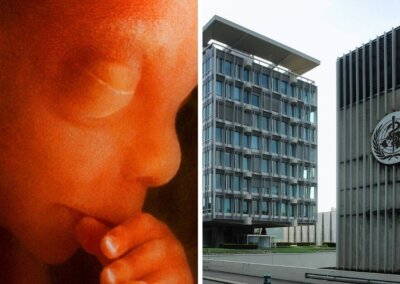A Hungarian patient association for premature babies is promoting skin-to-skin family therapy to improve development for babies born early.
The Hungarian Preterm Patient Association, Melletted a helyem Egyesület, has celebrated International Kangaroo Care Awareness Day to encourage parents and medical professionals to adopt this method of care for premature babies.
What is kangaroo care?
Kangaroo care involves skin-to-skin contact, placing the premature baby on the bare chest of a family member involved in the therapy. The baby is then covered in a blanket to create an incubator-like environment that has the right temperature and is safe and comfortable for the baby. The skin-to-skin contact is long-duration and lasts a few hours.
Dr Csaba Nádor, neonatologist and President of the Preterm Patient Association, has said that kangaroo care “has been shown to provide children with more stable vital signs such as improved respiratory rate, pulse and blood pressure. The method also has long-term positive benefits, among which it is essential to emphasize neurological development, including cognitive functions”.
Backed by the World Health Organization
The kangaroo method is backed by the World Health Organization (WHO), which published a global position paper on the subject earlier this year. The paper outlines the evidence for the practice, showing significant improvement in mortality rates and development of premature babies and babies with low birth weights who are treated with this family therapy.
It also lists the benefits of the therapy for family members, as evidence shows that there are also physical and mental health benefits for mothers who take part in kangaroo care.
The prospects for premature babies are improving all the time
A study, ‘Mortality, In-Hospital Morbidity, Care Practices, and 2-Year Outcomes for Extremely Preterm Infants in the US, 2013-2018’, by Dr Edward F Bell of the University of Iowa, found that from 2013 to 2018, with infants born between 22 and 28 weeks gestation, “survival to discharge occurred in 78.3% and was significantly improved compared with a historical rate of 76.0% among infants born in 2008-2012”.
The study, which took place between 2013 and 2018, assessed 10,877 infants born between 22 and 28 weeks gestation in 19 academic medical centres across the US.
This means that almost four out of five extremely prematurely born babies survived and were able to be assessed at 22-26 months corrected age (22-26 months from their due date) for a number of health and functional outcomes.
Right To Life UK spokesperson Catherine Robinson said “Kangaroo care is a groundbreaking innovation that amazingly benefits premature babies and parents involved in their care. It is so heartwarming to read the evidence of improvements in outcomes for these tiny babies and encouraging to see funding from the World Health Organization directed to such life-affirming care”.












